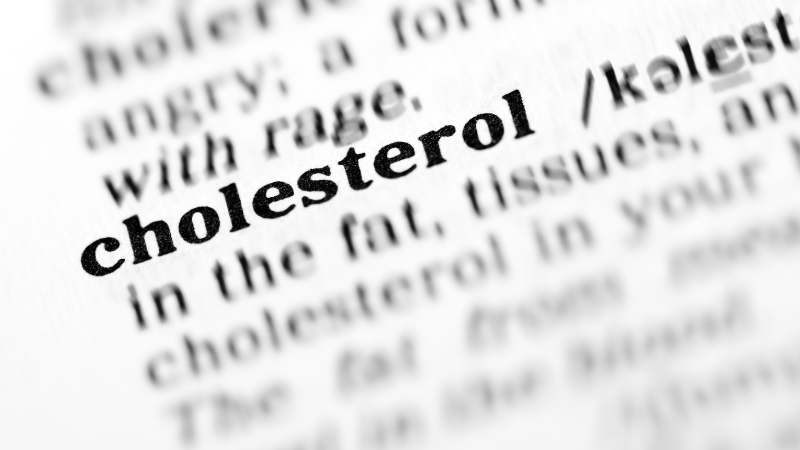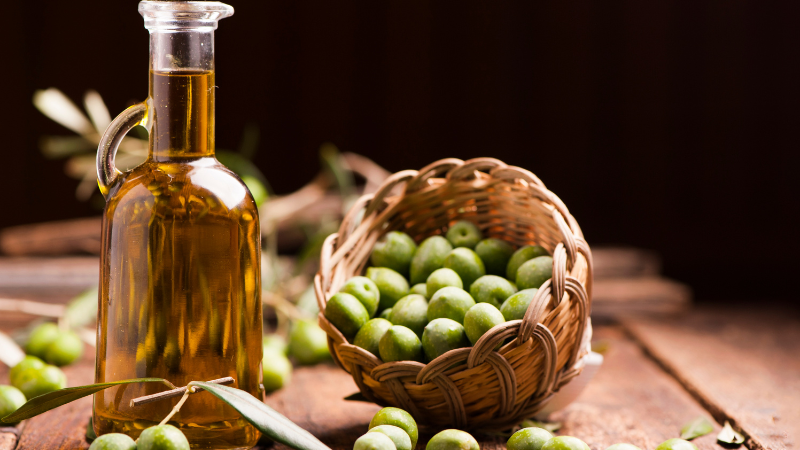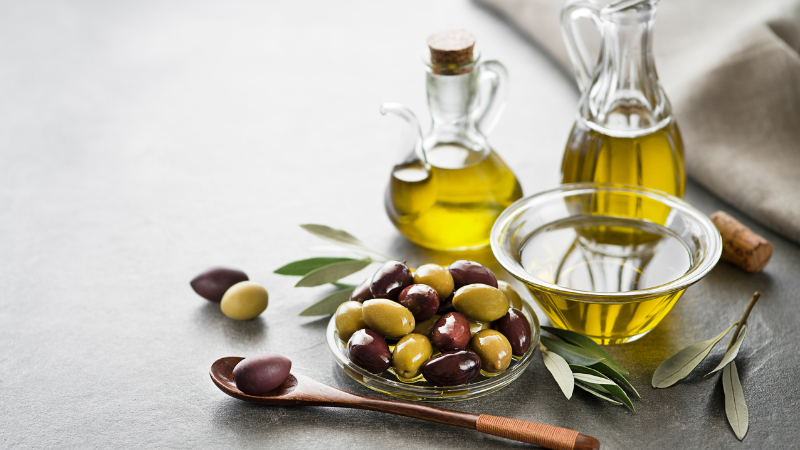Is Olive Oil Good for Cholesterol?
Olive oil and extra virgin olive oil are popular suggestions for food that should be eaten as part of a healthy lifestyle, especially if you are interested in improving your heart health. One of the biggest concerns with diet is cholesterol levels.
While it’s true that high cholesterol can be responsible for many heart complaints and can increase the risk of heart disease, you need to have a better understanding of what cholesterol is to know what you should be eating and what you shouldn’t be eating.
Did you know, though, that olive oil has cholesterol, in addition to the omega 3 fatty acids and other healthy properties? Is this concerning? No.
Olive oil can contribute to the blood cholesterol level in your body. That is not alarming or bad, necessarily, as there are two types of cholesterol – LDL cholesterol and HDL cholesterol.
To understand the difference, how to increase your intake of good cholesterol and why you should switch other fats for olive oil, look at this post.
What are the different types of cholesterol?
The name cholesterol is used to describe blood-based lipids, or fats, which are an integral part of our daily intake of food.
Problems arise, however, when you have too much cholesterol in your body, which can lead to health issues like severe cardiovascular disease. Does that necessarily mean that all cholesterol is the same?
No, as there is what is known as good cholesterol and bad cholesterol. Good cholesterol, known as High-Density Lipoprotein or HDL for short, absorbs cholesterol and takes it to your liver. Your liver then flushes it out of your body.
When your body has very high levels of high-density lipoprotein, it can help reduce your chance of suffering from stroke and heart disease.
Whereas bad cholesterol, known as Low-Density Lipoprotein or LDL for short, causes the lipids to collect on the walls of your arteries.
When you have dangerously high levels of this type of cholesterol, you are at greater risk of suffering from arteriosclerosis, angina, strokes, heart attacks and heart disease.
Why is olive oil good for cholesterol levels?
It doesn’t matter what type of olive oil you choose, but all olive oils are extremely high in monosaturated fatty acids. How high is extremely high? Approximately 75%.
When you substitute saturated fats with a good source of monosaturated fats, you can reduce your LDL cholesterol levels considerably.
Are all types of olive oil good for cholesterol?
Although any olive oil is better than no olive oil at all, not all kinds of olive oil will benefit your cholesterol levels equally. To enjoy the best benefits of switching up your diet with more olive oil, you are best to choose the best quality extra virgin olive oil you can afford.
Ideally, one that has also gone through the least processing and therefore is high in nutritional components.
How to add more olive oil to your diet
You can use olive oil for all types of cooking, including sautéing, marinating, roasting and grilling meats, vegetables, seafood and poultry.
If your diet does not have much olive oil and you are not used to including it, you may be surprised at how easy it is to switch out other fats for it.
Some examples of ingredients that can be replaced by olive oil include:
- Butter – with the majority of pasta dishes, particularly the ones with lighter sauces, you can switch out the butter for olive oil.
- Margarine – When you are baking, if the recipe calls for margarine you can replace it with olive oil. There was even some research that proved olive oil increased cake volume and batter density.
- Other Types of Oils – if you like to serve salad with a dressing you can replace other oils with olive oil.
- Canola Oil – if you like to sauté vegetables in canola oil, you easily switch this with olive oil. As well as imparting its distinctive flavour to vegetables, olive oil can also help improve the polyphenols in the food more effectively.
- Ghee – ghee can be replaced with oil for truly delicious mashed potatoes.
Word of warning about olive oil
We have a little word of warning to give you about olive oil.
If you are solely relying on your olive oil intake to get all the plant sterols and polyphenols, you need to eat a greater number of calories to get phytochemicals this way.
Obviously, many people are trying to avoid eating as many calories as possible.
Extra virgin olive oil does offer a lot of health benefits, but if you are trying to reduce calories but want phytochemicals, you could eat more green leafy lettuce.
Other ways to lower cholesterol
Replacing olive oil is just one thing you can do to lower the levels of LDL cholesterol in your body. If you have concerns about the levels of cholesterol in your diet and body, there are a number of measures you can take, including
- Reducing your meat and dairy product consumption
- Switch out your normal food ingredients for lower fat plant-based or dairy alternatives
- Eat more soluble fibre as it can regulate the volume of cholesterol absorbed in your bloodstream. This is found in food and ingredients like oatmeal, kidney beans, Brussels sprouts, pears and apples.
- Look out for trans fats in packaged foods. Any food that has hydrogenated or partially hydrogenated oils, they will have trans fats in them too.
- You can also make lifestyle changes such as cutting out smoking, exercising more, reducing your alcohol intake and getting more sleep
Summary
If the amount of cholesterol, or should we say bad cholesterol, in your diet is worrying you and you are looking for actionable steps to take to reduce it, the first thing you may want to look at is using more olive oil.
Rather than being a saturated fat, extra virgin olive oil is high in monounsaturated fats. The health benefits of olive oil are well known.
When you consider the above information, it is easy to see that, within moderation and when used in the right amount of balance, olive oil and extra virgin olive oil can be a part of a healthy lifestyle.



